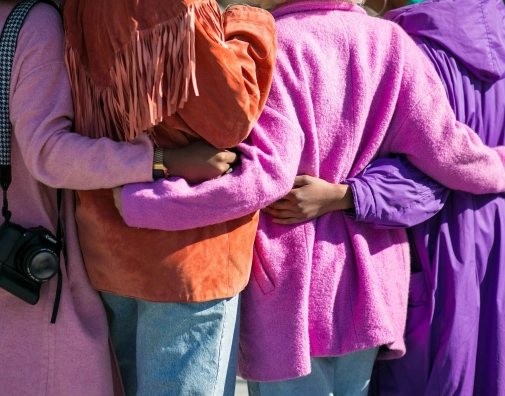
Origins: Starting the Conversation Without Breaking the Bond

“I'm No Longer Sure of My Roots”: How to Talk About It Without Breaking the Bond
Questioning your origins is never a trivial matter. Whether it comes after an unexpected confession, a revealing DNA test, or a doubt that has grown over time, thinking “What if my roots aren’t what I believed?” can shake your identity to its core. And when it comes time to talk about it—with loved ones, with parents, with a child—the fear of hurting someone or damaging an important relationship can feel overwhelming.
So how can we open this conversation with care, honesty, and respect?
1. When Doubt Creeps In
Doubt can arise in many ways: physical differences between family members, an offhand comment, or a long-held silence about the past. Sometimes it comes from a genetic test that reveals an unexpected result. Whatever the source, the emotional weight is real: fear, anger, sadness—and a deep, human need for truth.
2. Seeking the Truth Isn’t Betrayal
It's important to understand that wanting to know the truth about your origins is not an act of betrayal. It doesn't mean rejecting those who raised or loved you. It's a legitimate need to better understand who you are—your body, your history, your heritage. Expressing this need with the right words can ease a lot of tension.
3. Choose the Right Time—and the Right Tone
Talking about something so sensitive takes courage. Choose a calm moment, a setting where listening is possible. Avoid accusations or harsh phrasing. Speak in terms of feelings, not blame. Staying open and non-confrontational gives the other person space to respond without going on the defensive.
4. Expect Complex Reactions
Opening up about your doubts can trigger a range of reactions: relief, sadness, denial, anger. Be prepared to hear that the other person might not be ready—or willing—to talk. That doesn’t mean your questions are invalid. It just means that their emotions also deserve space. A respectful approach today may allow for a deeper conversation later, when the time is right.
5. What If the Truth Is Hard to Hear?
Sometimes the revelations are painful: hidden adoptions, infidelity, anonymous insemination, or a presumed parent who isn’t biologically related. Even when these truths are difficult, they can also lead to more honest and grounded relationships.
Love isn’t written in genes alone. It’s built on trust, shared moments, and the daily acts of care that define a bond.
6. Getting Support Is a Kindness to Yourself
You don’t have to navigate this emotional landscape alone. Speaking with a therapist, a family mediator, or a support organization can help you process your emotions and prepare for the conversation.
Resources like Mouvement Retrouvailles or adoption support services (and even online communities) can offer a safe space to talk—without judgment.
7. DNA Can’t Say Everything… But It Can Help
Paternity tests, sibling tests, or ancestry DNA tests can sometimes confirm or rule out biological relationships. At Adnà, we offer these services with discretion, compassion, and precision—knowing that behind every sample lies a deeply personal story. DNA isn’t a replacement for dialogue—but it can open the door to it.
Your DNA holds answers. But only you decide when, how, and with whom to seek them.
Conclusion: Truth Doesn’t Have to Break the Bond
Expressing your doubts doesn't mean cutting ties with your past. On the contrary—it can be a path to reconciliation with your story, your emotions, and your sense of identity.
When you dare to speak your truth with kindness, you give your relationships a chance to grow stronger.
And often, it’s in that vulnerability that deeper, more authentic connections are born.
Other Journal: News
VIEW MORE


